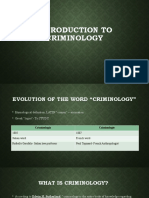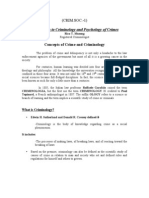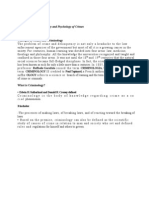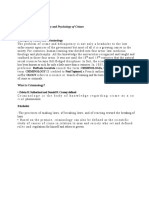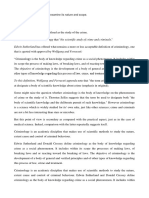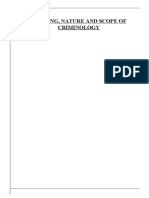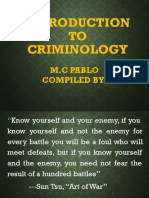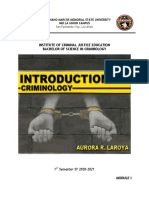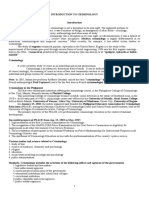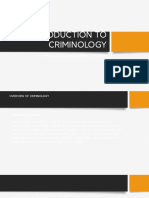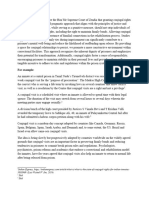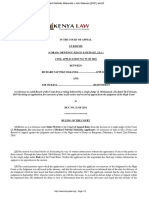0% found this document useful (0 votes)
6 views5 pagesCRIM Notes
Criminology is the scientific study of crime as a social phenomenon, encompassing the making and breaking of laws and society's reactions to them. It includes various subfields such as sociological criminology, victimology, and the etiology of crime, and is influenced by laws such as R.A. 11131, which regulates the criminology profession in the Philippines. The document also discusses the nature of criminology, its application as a social science, and the dynamics of victimization, highlighting the contributions of key figures like Edwin Sutherland and Benjamin Mendelsohn.
Uploaded by
ramilacoba998Copyright
© © All Rights Reserved
We take content rights seriously. If you suspect this is your content, claim it here.
Available Formats
Download as DOCX, PDF, TXT or read online on Scribd
0% found this document useful (0 votes)
6 views5 pagesCRIM Notes
Criminology is the scientific study of crime as a social phenomenon, encompassing the making and breaking of laws and society's reactions to them. It includes various subfields such as sociological criminology, victimology, and the etiology of crime, and is influenced by laws such as R.A. 11131, which regulates the criminology profession in the Philippines. The document also discusses the nature of criminology, its application as a social science, and the dynamics of victimization, highlighting the contributions of key figures like Edwin Sutherland and Benjamin Mendelsohn.
Uploaded by
ramilacoba998Copyright
© © All Rights Reserved
We take content rights seriously. If you suspect this is your content, claim it here.
Available Formats
Download as DOCX, PDF, TXT or read online on Scribd
/ 5




